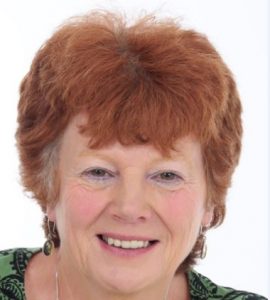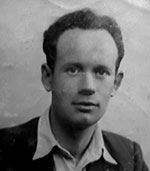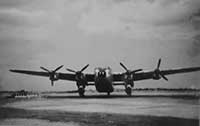Watch this video of one of our directors at the festival, Matt Bosley.
Category Archives: Irish in London Theatre
Festival producer Anne Curtis is interviewed about her role
 In this short sound clip the producer of the “In the Shadow or in the Shelter” festival of London Irish plays, Anne Curtis is interviewed about her motivations and role in the event.
In this short sound clip the producer of the “In the Shadow or in the Shelter” festival of London Irish plays, Anne Curtis is interviewed about her motivations and role in the event.
To listen, please click HERE.
Click here to book tickets for performances on
10th-16th October in Kentish Town, London NW5
Click here to book tickets for performances on
21st -23rd October in Colliers Wood, London SW19
Director Matthew Bosley
 I first found out about Green Curtain Theatre and their ‘In the Shadow and the Shelter’ whilst I was training in Theatre Directing at Mountview earlier this year. I applied to be involved with directing, and after meetings with Anne Curtis was fortunate enough to be given not one, but two, fantastic plays to direct – Jackals by Night, Crows by Day by Maureen Alcorn and Body and Blood by Lorraine Mulaney. I love these plays for how they cleverly combine personal stories and great political contexts (Second World War, and post-war London, respectively) – they should make very interesting and moving watching.
I first found out about Green Curtain Theatre and their ‘In the Shadow and the Shelter’ whilst I was training in Theatre Directing at Mountview earlier this year. I applied to be involved with directing, and after meetings with Anne Curtis was fortunate enough to be given not one, but two, fantastic plays to direct – Jackals by Night, Crows by Day by Maureen Alcorn and Body and Blood by Lorraine Mulaney. I love these plays for how they cleverly combine personal stories and great political contexts (Second World War, and post-war London, respectively) – they should make very interesting and moving watching.
Before embarking on this project I must admit I had fairly limited, or perhaps obtusely simplified knowledge about the history of Ireland and Britain-Ireland relations, having no immediate Irish background and being quite young! However, I soon found myself stuck in and fascinated with research, which absolutely enriches an understanding of these plays. Saying this, I don’t think audiences by any means need an existing detailed understand of the context to enjoy these works – they work perfectly well as an entertaining and sensitive introduction to Irish lives in London. And above all, they are great plays – I wouldn’t want to direct them otherwise!
My previous experience in the Fringe theatres of London are Pinter’s The Dumb Waiter at the Courtyard Theatre, Been on the Job Too Long, a new play by James Martin Charlton and Peter Schlemiel, my own adaptation of a German folk tale, at Theatre N16. As well as training at Mountview, I have an MA in theatre and performance by research from Lancaster University, and as part of my degree I trained in contemporary dance. In rehearsal, I like to work on movement with actors in order to create strong performances, and drama which is engaging and atmospherically striking. As a student I directed large scale and ambitious projects such as the musical Cabaret, Brecht’s Mother Courage and Her Children and Buchner’s Woyzeck.
I can’t wait to start rehearsing these shows with the six talented actors, and I hope to develop with them some very real, engaging and living characters. It’s going to be a busy four weeks and a fairly hefty task to direct two plays at the same time (not something I’ve had to do before!) but I feel prepared and it will be great fun.
Matthew Bosley
Click here to book tickets for performances on
10th-16th October in Kentish Town, London NW5
Click here to book tickets for performances on
21st -23rd October in Colliers Wood, London SW19
Background to Crows by Day, Jackals by Night-Maureen Alcorn
Like most men who survived the Second World War, my dad was unwilling to share many stories about his experiences. Firstly I guess because I was a child and he wouldn’t want to frighten me about the evil that war unleashes. Secondly, men are notoriously bad at talking about their emotions, especially my dad’s generation. Lastly, I think the experience of serving in Burma and fighting tooth and claw against the Japanese was so traumatic, my dad never fully processed it as witnessed by the terrible nightmares he suffered sporadically, waking up screaming, terrified by the dream images of soldiers plunging towards him, bayonets at the ready.

My dad grew up in Donegal, on a twenty acre farm near the banks of Mulroy Bay, in a tiny hamlet called Muneaugh. Home was a tiny thatched cottage, which he shared with two brothers and two sisters. Water was hauled from a nearby well and my dad and his siblings were all expected to help out on the farm, tending to the dairy cattle, harvesting the hay, raising chickens and growing several acres of potatoes. Every summer, the peat was cut, dried and carried home, ready for the savagery of winter.
That way of life remained had remained unchanged for generations and I remember helping stack the peat, milk the cows and collect the eggs whenever we came to stay over the summer holidays. Superstition was rife too – I remember being terrified that the leprechauns would kidnap me if I walked too close to the hedgerows, as my grandfather warned me daily. It was a tough life, lived close to the land and subject to the vagaries of weather and diseases that could strike the precious livestock at any time. The compensations were the beauty of that land, the wild freshness of Mulroy Bay and the closeness of the community, tiny and perpetually interested in the minutiae of daily life and perpetually happy to talk endlessly about it…..
Of course by the time we came for our visits, the brothers and sisters had all gone either to America or England, leaving the farm in the hands of my Uncle Billy, the youngest son. Sadly, 20 acre farms can only sustain one small family, so Uncle Tommy, my dad and Aunts Mary Ellen and Annie had to go. That’s the reality of rural Ireland – the leaving of it is embedded in the bone.
All of that is a million miles away from the humid jungles of Burma, facing a tough, relentless enemy determined to fight to the last man – to lay down their very lives for their Emperor. But that’s exactly where my dad went – following in the footsteps of his elder brother and signing up as soon as he reached eighteen. I think he was motivated by the glamour of joining the RAF, the moral rightness of the fight and the inevitability of leaving a rural Ireland which would not be able to sustain him.

And of course the RAF was very happy to have him join their ranks, as well as the tens of thousands of other Irish men and women who came over to join the armed services. At least 165,000 men from Eire enlisted to fight in a war they were never compelled to join – and whilst it’s true that for many the imperative was economic, for others they wanted the excitement of action or were convinced it was a just war.
After all, the Spanish Civil War demonstrated to the world the real and present threat of fascism – and again many volunteers from Eire joined the Republican movement. There was no money to be had fighting alongside the leftists, unlike those who signed up to fight for Franco, bribed with promises of easy money. However, whilst the survivors who had fought against Franco were celebrated as heroes, the Franco supporters failed to cover themselves in glory and were summarily shipped home, having managed only to fire on their own side…

Shortly afterwards, World War 2 broke out. Ireland remained solidly neutral during the war – the only sensible stance for De Valera to take to avoid annihilation. De Valera also remained ambivalent about the thousands of men flocking across the channel to join up. In essence, they were keeping a poor country afloat, sending money back to their families when unemployment was rampant. There was also the thorny question of the Irish ports, which the allies were desperate to use, access De Valera refused throughout the war.
All an interesting backdrop – but of course war is about which side is most effective at killing its enemies – and imagine my dad, used only to the tranquility of Mulroy Bay being faced with the most hostile environment imaginable – Japanese soldiers committed to killing him, bombs dropping, insanely dangerous sorties in weather conditions capable of crushing the planes he flew with ease. Then on the ground there were the leeches, snakes, mosquitos with their freight load of malaria and dengue, debilitating diarrhoea and the ever present fear. There was also fierce camaraderie. My dad made – and lost- lots of good friends in Burma. It’s impossible to imagine the reality of his daily life – only to be certain that it stamped its imprimatur on him. He learnt quite a bit of Urdu from Commonwealth soldiers which never left him. My dad delighted in trying out his linguistic skills whenever we met Pakistani families in Birmingham.
So when Anne (of Green Curtain Theatre Company) brought a group of writers together to mark the 100th anniversary of the Easter Rising with a festival of plays on the theme of Irish lives in London since the Rising, I was immediately drawn to the idea of setting my play in the early forties and basing it very loosely on my dad’s experiences.
The Festival of six plays marks the centenary by celebrating the lives of Irish men and women across those hundred years. Also, as the Green Curtain Theatre Company celebrates the Irish presence in London, at least half of the scenes needed to be based in London. I decided therefore to split the play into two parallel parts – showing what happens to a young wife in London while her husband is fighting against the Japanese Army in Burma.
I did quite a bit of research before I began writing – about life in Ireland during the war years. There was a real tension between the perception of the British – who believed the Irish were living the high life with easy access to luxury goods. They had read about hotels in Dublin offering a mouthwatering array of food rationed out of existence in the UK. In the early years of the war, the rich came over in their ferry loads to sample these Dublin delights. Then there was the reality for the majority of Dubliners – who’d lost their jobs due to the war and were starving. TB came name back with a vengeance- and killed the weakest ones first.
There was also war torn London to research – the bombings, rationing, petty criminality and the urge to survive at all costs. The London scenes explore the theme of survival – and how that impacted on relationships.
Finally there was the war in Burma to explore. I went along to the Imperial War Museum as part of that to find only a reassembled Japanese zero, rescued from the jungle, after the war. It truly was the forgotten war of the forgotten army – and I wonder just how aware the men were of that phrase as they survived their days and nights in the hostile, humid jungle.

Though audiences may find this incredible, every single one of the dramatic episodes in the Burmese scenes are based on stories my dad told me or on accounts I read on the Burma Star Association website. That old adage about truth being stranger than fiction is true – you really couldn’t make it up.
I really enjoyed writing the play – and doing the research – even though the stories I read about were often gruesome or poignant, they were fascinating. They helped me to imagine what my dad and the hundreds of thousands of other men endured for the long years of the war in Burma. I was awed by the huge contribution made by men and women from so many Commonwealth countries who fought alongside my dad many of whom died out there in the dense jungles. Irish men in their thousands laid down their lives too – and I have tried, in ‘Crows by Day, Jackals by Night’ to tell something of their stories. The title, by the way, is taken from an account by one of the soldiers who had fought in Burma and warned against being taken prisoner. The Japanese would kill their prisoners slowly, by impaling them crucifix style against the branches of a tree, leaving the crows to pick out their eyes by day and jackals to devour their feet by night.
Horrendous, but that’s the reality of war. I guess the idea was to demoralise their enemy, but it actually had the reverse effect, enraging the men and making them intent on winning what they always felt to be a just war.
Do please come along to see our festival of plays. I can promise you that you will be moved by the dramas on stage – and there’s the whole spectrum of emotions in these six plays. There’s passion, humour, commitment, comradeship, survival, sacrifice and so much more all explored on stage. Irish in London expressed in six plays – we look forward to seeing you there…Maureen Alcorn.